The solution to plastic pollution is to reduce its use than in recycling
- In order to find solutions to plastic pollution, the Kenyan capital welcomed delegates from 161 states, along with several NGOs and industrial lobby groups, from 13 to 19 November. There are two groups of states competing in the negotiations: one for reducing production and the other for promoting recycling. However, the political use and physical limitations of recycling show that only the first option is viable.

The biosphere has soaked in plastic: microplastics, plastic pieces of less than 5 mm, in addition to filling the seas and accumulating them in their ecosystems, from where they are evaporated and found in the atmosphere, dispersing them in different ecosystems, both in the Pyrenees and in the Arctic. This pollution is found in our blood and our brain, damaging our health. The origin of this garbage generating chain, petrochemical, also produces pollution: in general, plastic production and use accounted for 3.4% of greenhouse gas emissions in 2019.
Between 2000 and 2020, plastic production has doubled to 460 million tonnes worldwide. According to the Organization for Economic Cooperation and Development, from now until 2060 plastic garbage can triple, but currently only 9% of plastic is recycled, the rest is buried, burned or spread in the environment.
The global perception of the influence of microplastics has expanded in recent years and a number of initiatives have been launched to combat it. One of them was the summit from 13 to 19 November in Nairobi, Kenya. There, some 2,000 delegates from 161 states met to reach a consensus on global measures against plastic pollution. Nairobikoa has been the third of five summits which show that negotiations are generally structured between two groups.
Two perspectives: recycling or reducing production
On the one hand, some sixty countries, driven by Rwanda, Norway, Kenya and the European Union, are committed to a coercive agreement with the aim of reducing plastic consumption and production. Rwanda has been one of the first states to ban plastic bags. On the other hand, according to the NGO USA, Saudi Arabia, China, Russia and India, rather than reducing consumption, this second group was hampering progress in waste management and recycling dituztenak.Hainbat. The president of the Fondation de la Mer (“Fundación del Mar”), Sabine Roux de Bézieux, says that some states would lose a lot if they agreed to reduce production because they produce plastic or because their industry and lifestyle consume a lot of plastic.
Disposable packaging was driven by the oil sector in the 1970s, replacing reusable packaging, mainly glass packaging, until then. To improve the acceptance of disposable packaging, they promoted recycling, which in practice is still a long way from recycling everything. Recycling externalises, in whole or in part, the cost and responsibility of packaging to consumers and public institutions.
With the industry effort, since the 1970s, waste management has become a personal responsibility, mainly by eliminating the productive process of the equation and knowing that everything was not going to be recycled from the beginning. In the report How Big Oil Misled The Public Into Believing Plastic Would Be Recycled (“The Oil Sector Led the Public to Believe How Plastic Would Be Recycled”), as explained by Laura Sullivan, former president of the U.S. Plastic Industries Association. “If the public thinks recycling works, there will be less concern for the environment.” This trend continues in the current negotiations, and in the attempt to curb progress, comes the proposal for “plastic credits”: like the famous “carbon credits”, these credits would allow the development of production in exchange for investing in recycling.
Is recycling a useful solution?
Although recycling is not a better practice than smoking, it has many problems, the first being a low rate. The European states that recycle plastic most are Slovakia and Lithuania, but only 56%. The lowest rates are found in France (21%) and Malta (10%). But if we got 100 percent, the problem wouldn't be solved: recycling generates nanoplastics, that is, microplastic fragments of less than 1 µm. This was observed in the races close to a polyethylene recycling plant in Norway, as shown by the work “Plastic recycling workshop as a source of microplastics for sediments and invertebrates from a distant stream”. In the UK, the The Potential for a Plastic Recycling Facility to Release Microplastic Pollution (The Potential for a Plastic Recycling Facility to Release Microplastic Pollution) study has shown that up to 13% of the plastic coming to a recycling plant can be processed and discharged outdoors, while with the best existing filters up to 6% can be used. Microplastics that extend in water are directed to the sea, where some zooplanctoi components, specifically rotifers, can also be further reduced and dispersed, as recently explained in the work “Microplastic fragmentation by rotifers in aquatic ecosystems contributes to global nanoplastic pollution”.
So is the remedy in bioplastics? So we expected, but Not so biodegradable: The paper Polylactic acid and cellulose/plastic blend textiles lack fast biodegradation in marine waters (“Less biodefeasible: mixed polylactic acid and cellulose/plastic fabrics have little rapid biodecomposition in marine waters”) shows that it is not entirely like this.
These difficulties demonstrate that the use of plastics produces, to a large extent, irreversible and irreparable pollution, and that basing solutions on recycling and “plastic credits” will only exacerbate the problem. In order to avoid the damage we should stop using and producing plastic so far. What are we missing from this?
Lurrak guri zuhaitzak eman, eta guk lurrari egurra. Egungo bizimoldea bideraezina dela ikusita, Suitzako Alderdi Berdearen gazte adarrak galdeketara deitu ditu herritarrak, “garapen” ekonomikoa planetaren mugen gainetik jarri ala ez erabakitzeko. Izan ere, mundu... [+]
Ur kontaminatua ur mineral eta ur natural gisa saltzen aritu dira urte luzeetan Nestlé eta Sources Alma multinazional frantsesak. Legez kanpoko filtrazioak, iturburuko ura txorrotakoarekin nahasi izana... kontsumitzaileen osagarria bigarren mailan jarri eta bere interes... [+]
Greenpeaceko kideak Dakota Acces oliobidearen aurka protesta egiteagatik auzipetu dituzte eta astelehenean aztertu du salaketa Dakotako auzitegiak. AEBko Greenpeacek gaiaren inguruan jasango duen bigarren epaiketa izango da, lehenengo kasua epaile federal batek bota zuen atzera... [+]











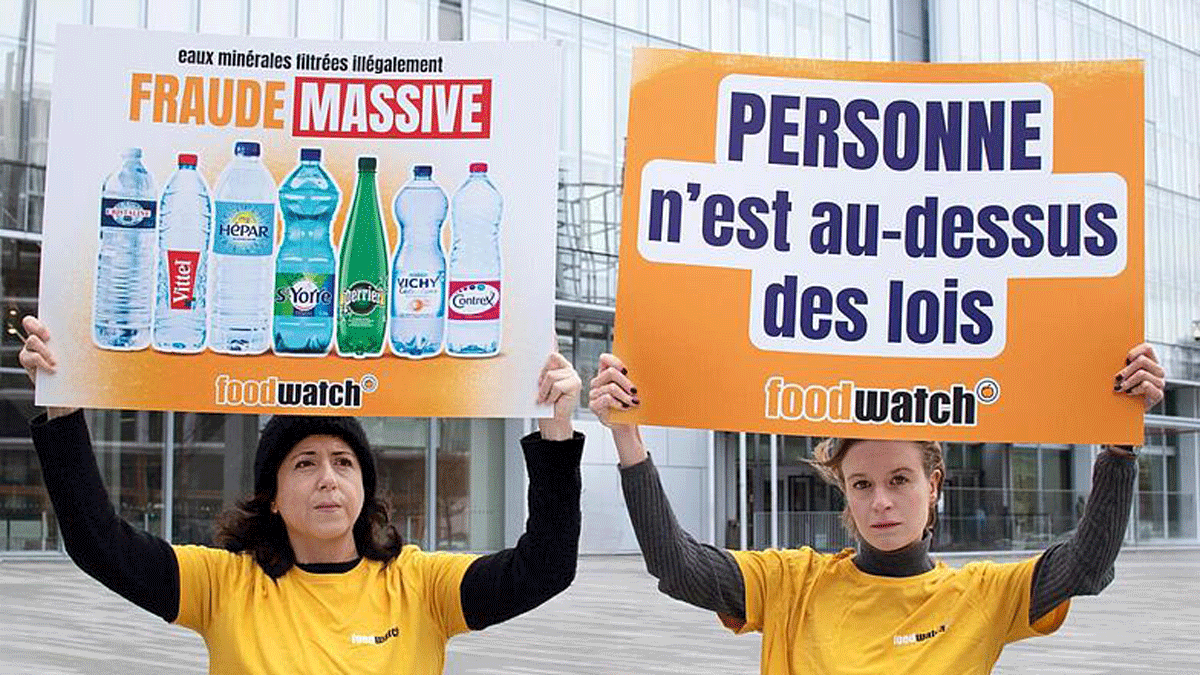




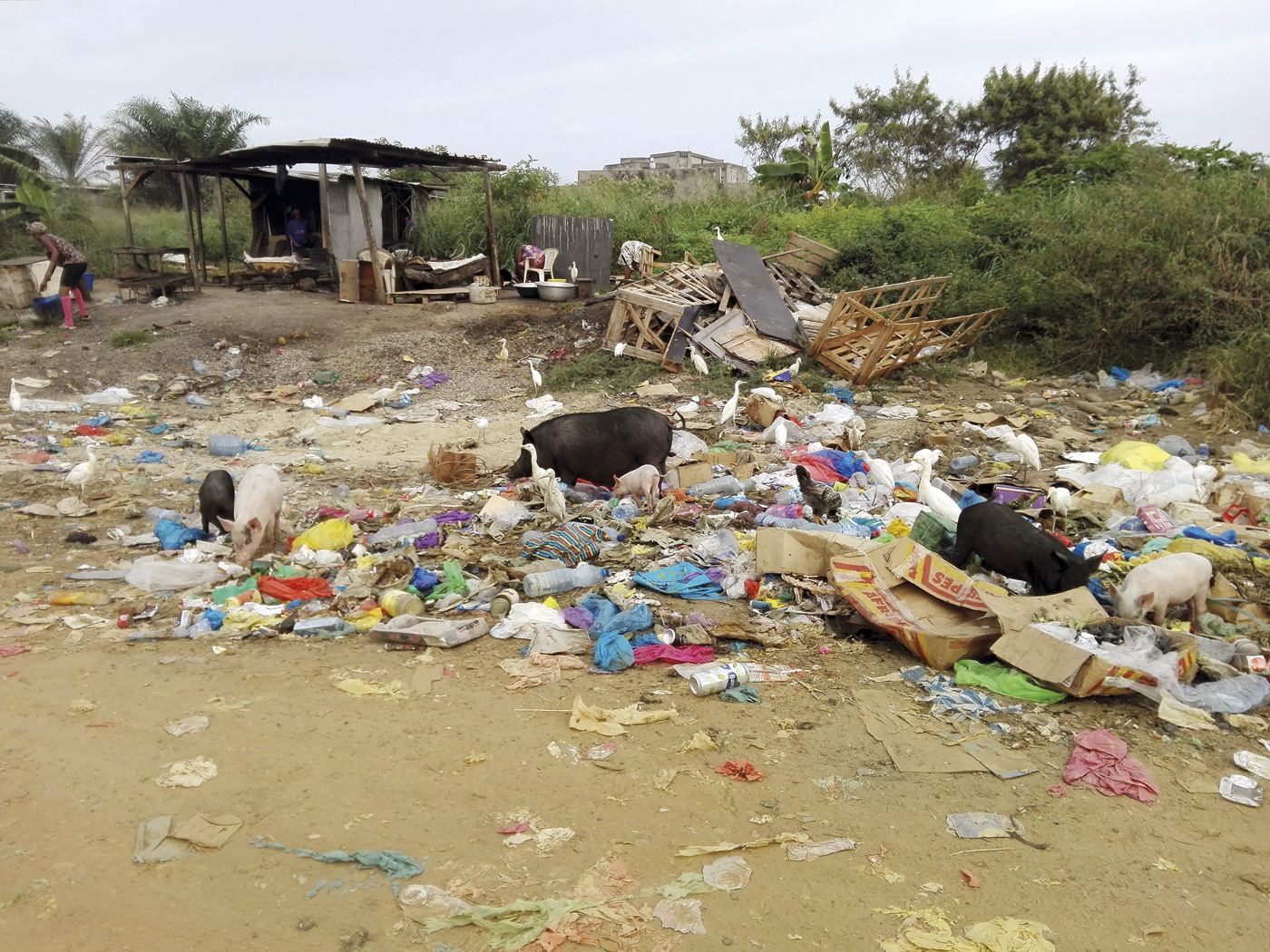


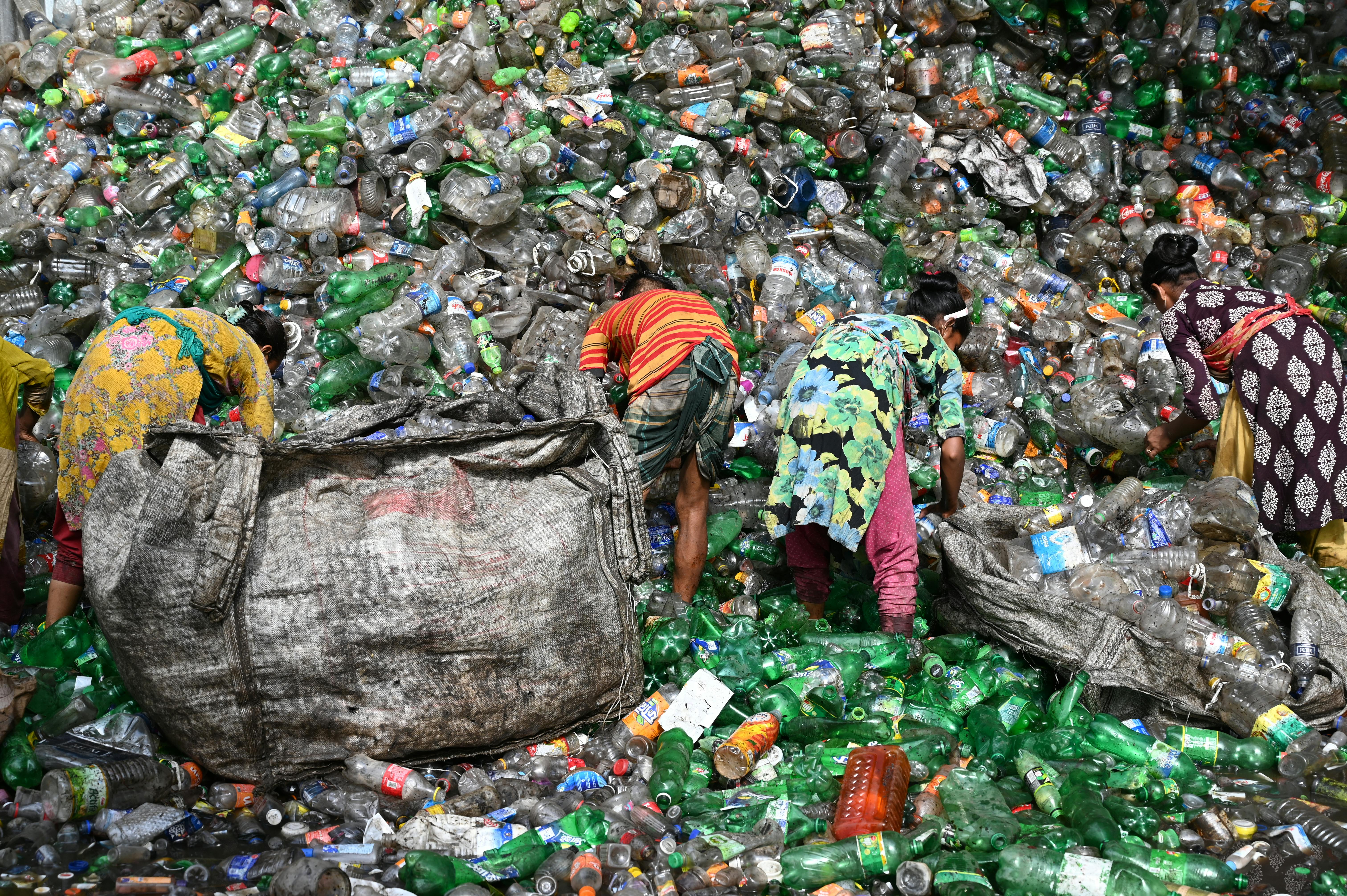
.jpg)

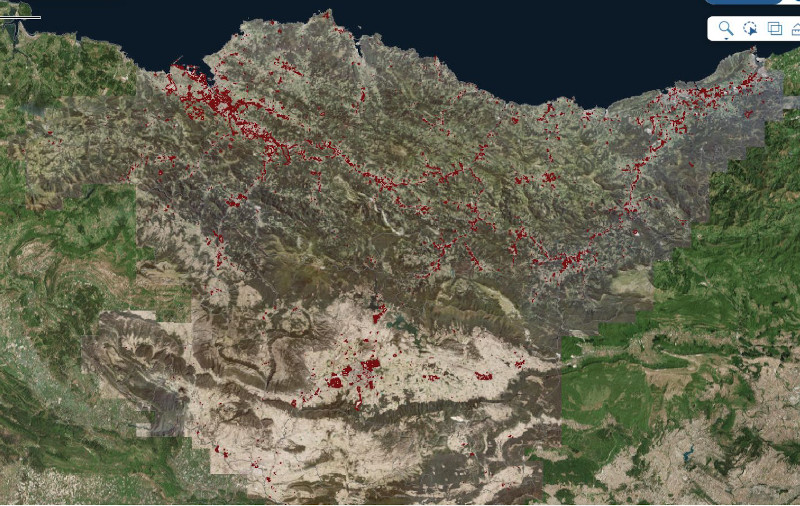
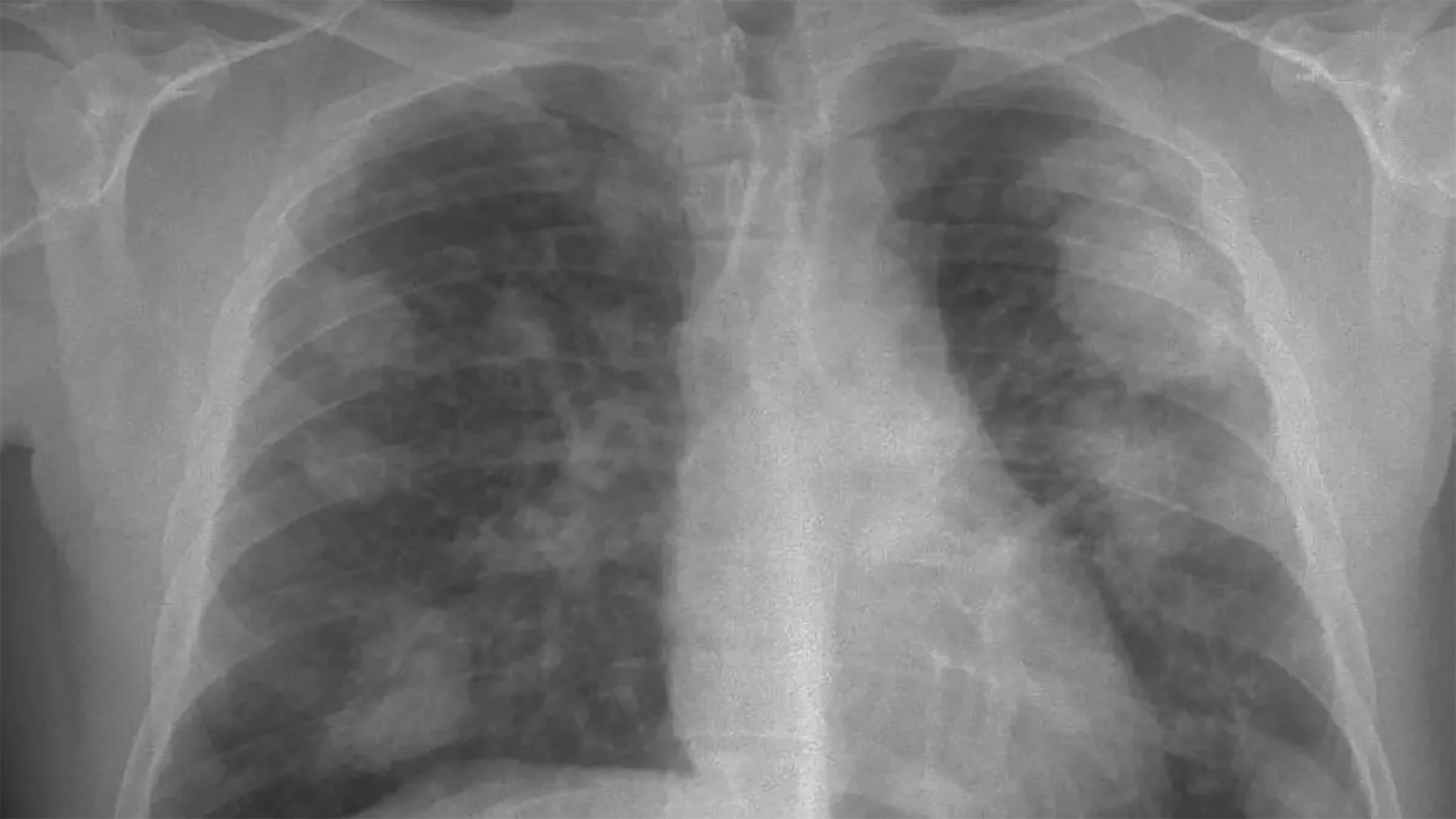
.jpg)